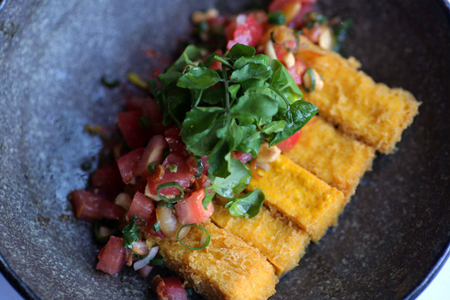If you are a vegetarian, to survive in Myanmar is a bit complicated at first because of language differences, sanitation standards, and regional divergences. Although vegetable-based dishes have always been part of the Burmese diet and are served at almost all eateries, vegetarianism as a concept is not easily understood in Myanmar. However, all you need to know is a magic word while taking tours to Myanmar. Thut thut luh. (It’s hard to put the sounds into the Roman alphabet, so have your first guesthouse teach you how to say). This is the way to say vegetarian in Burmese, which means “lifeless”. When you use this word with food, it is immediately understood and applies to all meat. Always order the dish, then specify “thut thut luh” to make sure that they do not add in even fish sauce, shrimp paste, etc.
These are some of the dishes a vegetarian in Myanmar will be happy to try:
Myanmar Traditional Food
Soup
1. Shan Tofu Soup
A traditional Shan soup contains tofu, boiled thin noodles, liquid tohu and toppings including smashed nuts, sesame seeds, parsley, cabbage, and a huge dose of ground, crunchy chili paste.
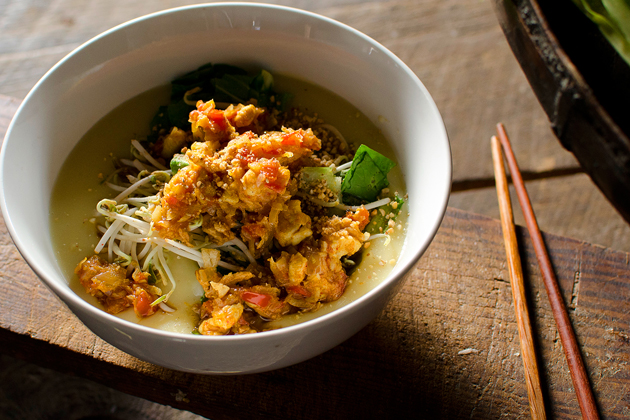
2. Fish soup (Mohinga)
Mohinga is not for vegetarians, but for the pescetarians to try. It is a mild fish soup that is seasoned differently each time, with crunchy additions, thin noodles, and dried fish chunks occasionally added.
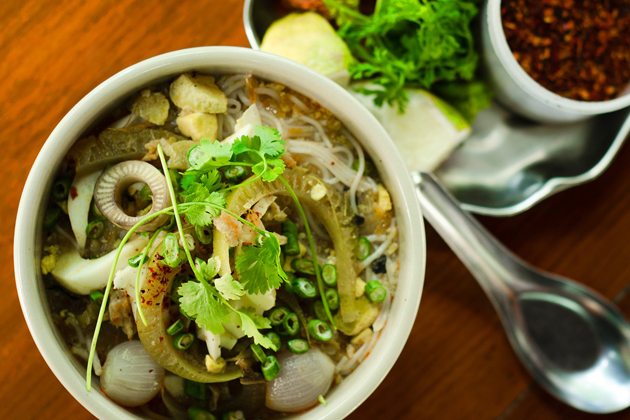
3. Mild Tomato Noodle Soup
It’s made of noodles, basic tomato paste, some crunchy fried beans fritters. At its most basic, it’s tomato sauce and pork, so make sure you order it “thut thut luh” to get a vegetarian version.
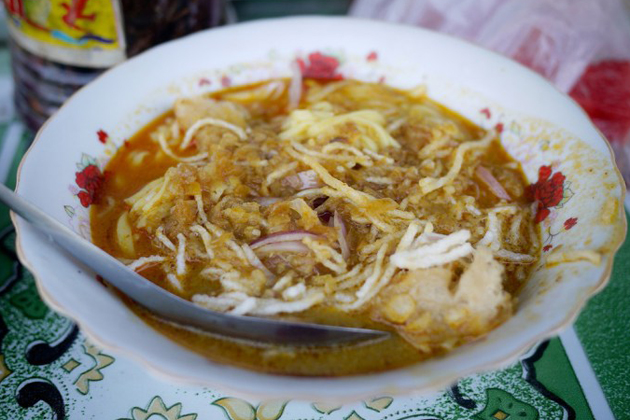
4. Vegetable Hotpot
Hotpot dish on the streets of Yangon is stuffed with veggies, bamboo hearts, mushroom and tofu.
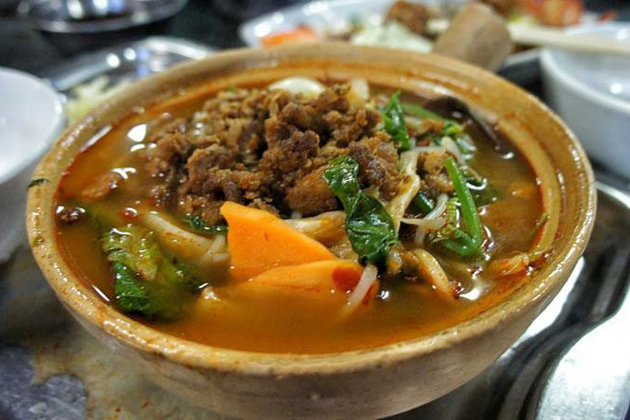
Salad
1. Shan Tofu Salad
Delicious yellow tofu, sliced and complimented with cabbage, nutty sauce, and spicy chili paste. It’s the same yellow tofu as in Shan tofu soup, but instead of liquid and soupy, the tofu sets firm, and is then sliced and garnished with cabbage, spicy chili paste, pickled veggies, and nuts/seeds/parsley.
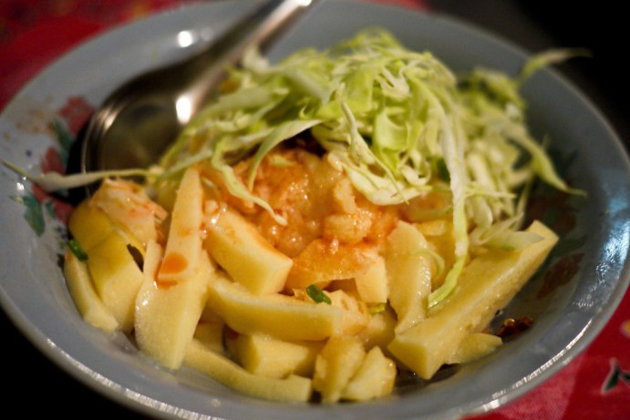
2. Tea Leaf Salad
A delicious tea leaf salad is a mix of tomatoes, ginger, crunchy mung beans, fried garlic, toasted peas, and various other ingredients to flavor!
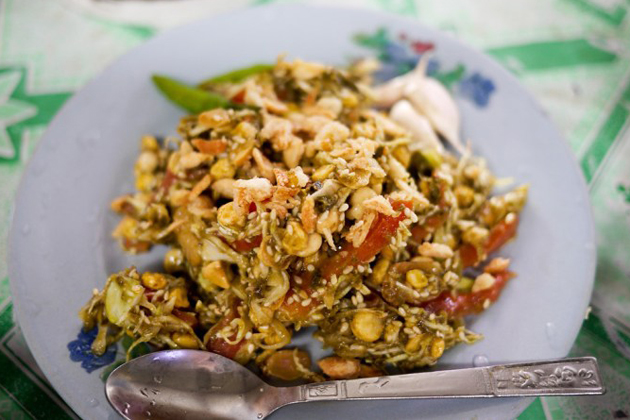
3. Pennywort Salad
The dish combines the bright green pennywort plant, lime, toasted sesame, turmeric oil, garlic, tomato…and other ingredients, according to local flavor preference.
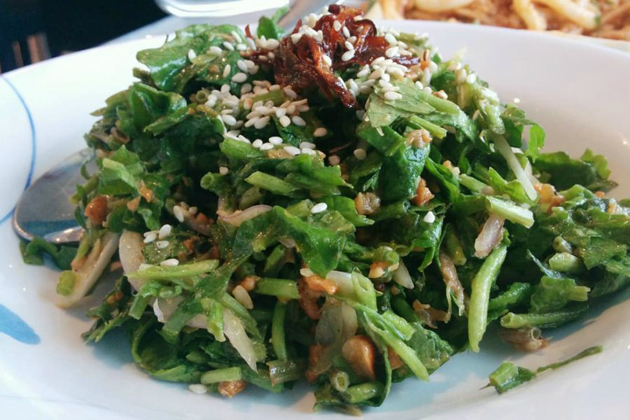
4. Tomato Salad
Tomato salad usually consists of tomatoes, onions, crunchy peanuts, sesame, and oily dressing of some sort.
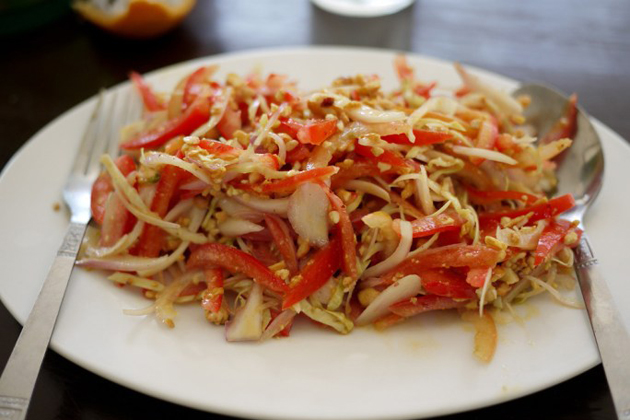
5. Seaweed Salad
A tangy seaweed salad with a bit of a crunch from the lightly cooked seaweed
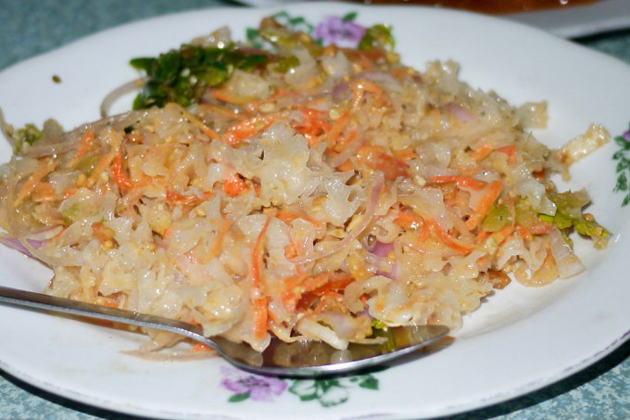
6. Fermented Bean Paste (Pone Yay Gyi)
Pone Yay Gyi is a bit regional. You can definitely find this dish in the Bagan area. It’s a thick, salty dish made from fermented soybeans usually. It’s a delicious condiment to sample with other dishes or mix into your rice for an extra jolt of flavor.
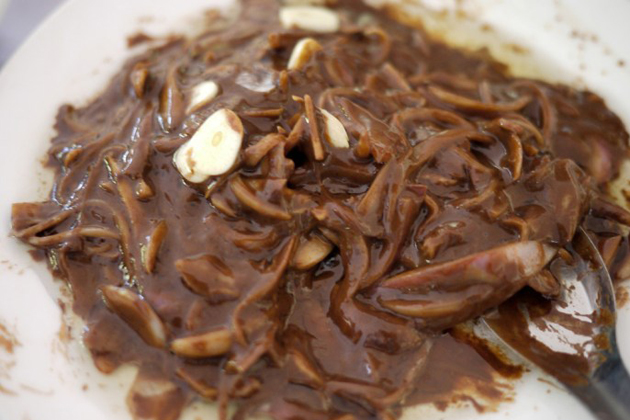
Internationally Influenced Cuisines
Burma is blessed with a huge range of cultural influences based on its history and location. Beyond influences from China and India, Burma is home to a range of ethnic minority groups with their own customs, language, and foods.
Stir-fried Chinese Noodles: it is basic but tasty and an easy vegetarian dish when the menu tended toward the meaty.
Street-Side Chapati and Dhal: Chapati, also known as roti, safati, shabaati and roshi, is an unleavened flatbread from the Indian Subcontinent and is cooked on a tava (flat pan). Dhal fry is a tasty North Indian style side dish for chapati.
Snacks, Fried Foods, and Side Meals: There was a huge range of deep-fried, pan-fried, and street-side snacks available all throughout the day. From the simple sweet or savory pancakes on the streets of Yangon to the more complex flavors in samosas, we never lacked for food option such as Deep Fried Veggies and Beans, Fried Dough Sweet or Savory, Beans, and Red Rice, etc.
Above is some useful suggestion for you to have the best Myanmar tour. Hope you have chances to add more and more in your own vegetarian dictionary when exploring Myanmar as a vegan.

